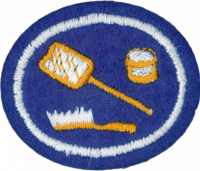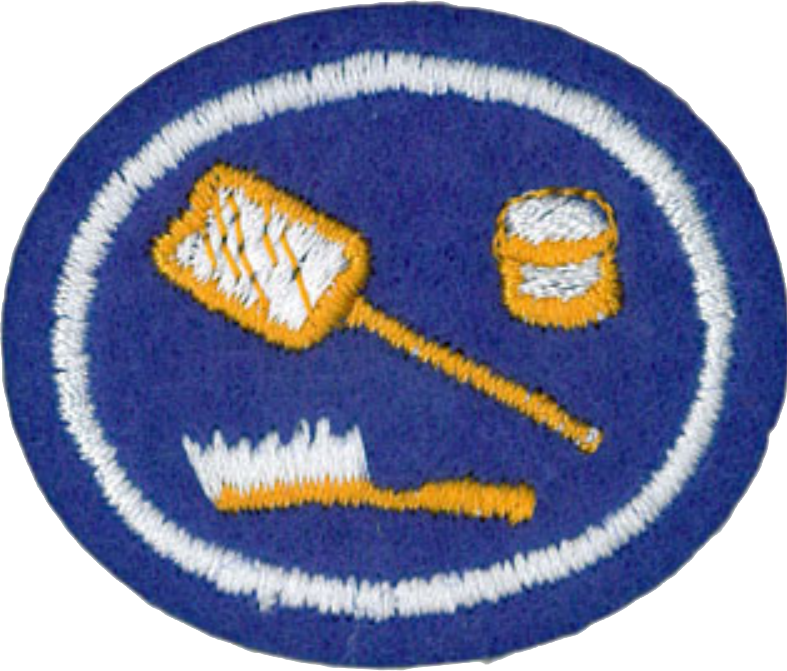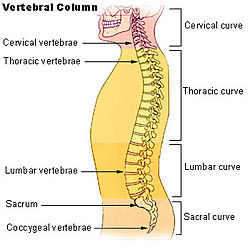Especialidades JA/Modales y apariencia cristiana/Respuestas 2
Nivel de destreza
2
Año
1975
Version
28.04.2024
Autoridad de aprobación
División Norteamericana
Y Jesús crecía en sabiduría, en estatura y en gracia para con Dios y los hombres.
- 1 ¡Jehová, Señor nuestro,
- cuán grande es tu nombre en toda la tierra!
- ¡Has puesto tu gloria
- sobre los cielos!
- 2 De la boca de los niños y de los que aún maman,
- fundaste la fortaleza a causa de tus enemigos,
- para hacer callar al enemigo y al vengativo.
- 3 Cuando veo tus cielos, obra de tus dedos,
- la luna y las estrellas que tú formaste,
- 4 digo: «¿Qué es el hombre para que tengas de él memoria,
- y el hijo del hombre para que lo visites?»
- 5 Lo has hecho poco menor que los ángeles
- y lo coronaste de gloria y de honra.
- 6 Lo hiciste señorear sobre las obras de tus manos;
- todo lo pusiste debajo de sus pies:
- 7 ovejas y bueyes, todo ello,
- y asimismo las bestias del campo,
- 8 las aves del cielo y los peces del mar;
- ¡todo cuanto pasa por los senderos del mar!
- 9 ¡Jehová, Señor nuestro,
- cuán grande es tu nombre en toda la tierra!
Estos versículos están diciendo que Dios ve al hombre como el acto más significativo acto de su creación. Él nos hizo un poco menor que los ángeles en importancia y nos dio el cargo de gobernar el resto de su creación.
Importancia
Una persona con la falta de higiene es desagradable estar alrededor. Los malos olores, la ropa sucia y cosas atrapados entre los dientes tienen una tendencia de ahuyentar a la gente. La mayoría de las personas no tomarán a una persona habitualmente sucio en serio, y en vez harán todo lo posible para evitar esa persona. Es muy difícil ser un testigo eficaz para su fe en estas condiciones.
Señales sociales
Esté atento a las señales sociales que indican que puede tener un problema. Si alguien está continuamente evitando su mirada o lo encuentra mirando a una parte de su cara con excepción de sus ojos, debe excusarse discretamente y echar un vistazo en un espejo. Revise sus dientes y asegúrese de que su cara esté limpia.
Si una persona le ofrece un chicle o una pastilla de menta, puede ser una forma educada de curar su mal aliento. La respuesta correcta es «Gracias». Acepte el chicle sin preguntar por qué se le ofreció. ¡Tal vez no va a querer saber la razón!
Moje el cabello cuidadosamente, asegurándose de que esté mojado hasta el cuero cabelludo. Vierta 15-30 ml de champú en la palma de su mano y luego póngalo en el cabello para formar una espuma. Enjabone el pelo hasta que se haya lavado todas las superficies. Enjuague profundamente - si cualquier champú se deja en el cabello, se secará y formará grumos de escamas de color amarillento.
Peine o cepille el pelo inmediatamente después de lavarlo, y de nuevo varias veces durante el día. El pelo más largo necesita un cuidado más frecuente. El pelo muy corto tiene que ser peinado necesariamente. Cuando haya terminado peinarse o cepillarse, ponga agua sobre el peine o cepillo para limpiarlo. Con el tiempo, un peine recogerá una acumulación de suciedad que es difícil de enjuagar.
No comparta un peine, cepillo o sombrero con otra persona, ya que esto puede facilitar la propagación de los piojos.
Las manos deben lavarse con frecuencia durante el día, especialmente después de ir al baño. Los gérmenes se propagan generalmente por las manos y lavarse las manos es una manera eficaz de prevenir su propagación. Asegúrese de usar jabón en las palmas de las manos, los dedos, el dorso de las manos y debajo de las uñas, y enjuagar bien. Muchas personas evitan lavarse las manos porque le seca las manos, pero esto es realmente un efecto de enjuague inadecuado. Si encuentra que lavarse las manos todavía le seca la piel, hasta después de un lavado minucioso, aplique una loción. Es aún más importante lavar la piel seca y agrietada, ya que las grietas ofrecen una entrada para los gérmenes en su sistema. Beba mucha agua para mantener su piel hidratada.
Las uñas deben ser recortadas cuidadosamente usando un cortaúñas. No se coma las uñas de las manos ni las quite solo así. Limpie debajo de las uñas cada vez que ve suciedad debajo de ellas.
Cuidado facial
El aspecto más importante del cuidado facial es la limpieza regular y frecuente. Esto se puede lograr con agua y jabón. Comience por mojar las manos y la cara con agua, luego ponga espuma en las manos con jabón y aplique a la cara. Enjabone por toda la superficie de la cara, frotando suavemente. Luego enjuague bien. Si lo desea, una loción se puede aplicar a la cara para hidratar la piel, pero existe poca evidencia de que esto ofrece algún beneficio de salud. Sin embargo, si el uso de una crema hidratante edifica la confianza de una persona, le hará más bien que mal.
Importancia
Razones por las que la cara es importante:
- Es lo primero que ven los demás.
- Es lo primero que se ve (cuando se mira en el espejo).
- Es uno de los comunicadores principales de las emociones.
- La mayoría de las personas definen «linda» o «guapo» basada ela apariencia del rostro de una persona.
- La gente le reconoce más por su cara que cualquier otra parte del cuerpo. Su rostro le define.
La gente puede adoptar una expresión facial como una acción voluntaria. Sin embargo, debido a que las expresiones están bastante ligadas a la emoción, muchas veces son involuntarias. Puede ser casi imposible evitar expresiones para ciertas emociones, incluso cuando sería muy conveniente hacerlo; una persona que está tratando de evitar insultar a una persona que encuentra muy poco atractivo podría aun así mostrar una breve expresión de disgusto antes de poder reanudar una expresión neutra. La estrecha relación entre la emoción y la expresión también puede funcionar de la otra manera; se ha observado que asumiendo voluntariamente una expresión puede causar realmente la emoción asociada.
Una buena postura hace lo siguiente:
- Proporciona equilibrio óptimo.
- Optimiza la respiración.
- Afecta a la circulación de los fluidos corporales.
- Reduce el dolor de espalda.
- Protege las articulaciones de esguince.
- Expresa confianza.
- Se considera una parte integral del atractivo físico.
- Mejora la capacidad del cuerpo para transportar cargas pesadas.
- Protege contra deformidad de la columna cuando una persona envejece.
Education, page 198, paragraph 3 reads as follows:
- "Among the first things to be aimed at should be a correct position, both in sitting and in standing. God made man upright, and He desires him to possess not only the physical but the mental and moral benefit, the grace and dignity and self-possession, the courage and self-reliance, which an erect bearing so greatly tends to promote. Let the teacher give instruction on this point by example and by precept. Show what a correct position is, and insist that it shall be maintained."
Sitting
The spine has four normal curvatures. From top to bottom they are the cervical, thoracic, lumbar, and sacral curves. The upper three of these should be aligned as shown in the image to the right when sitting. To get them into this position, do the following:
- Sit in a chair with your buttocks touching the back of the chair.
- Slouch forward (don't worry, we will correct this immediately!)
- Straighten up and accentuate the lumbar curve arching our shoulders back. Hold this position for a few seconds.
- Release and relax, drawing your abdomen back into a comfortable position, but with your shoulders still straight and back.
- Make sure your weight is distributed evenly on both hips.
- Keep your feet flat on the floor. Your knees should be level with your hips or a bit higher. If you cannot do this and keep your feet flat on the floor, adjust your chair (if it is adjustable) or use a smaller chair.
- Do not cross your legs.
If working at a computer, your forearm should extend directly in front of you and remain horizontal. The wrists should arch downwards towards the keyboard. You may need to use a wrist support to help you with this.
Standing
When standing, the spine should follow all four curvatures as in the image above. Observe the following points:
- Hold your head up with your chin in.
- Thrust the chest forward and the tummy tucked in.
- Keep your knees straight. But do not lock your knees. This restricts blood flow, and you could pass out.
- Make sure your pelvis is not tilted (neither forward nor back).
- If standing for a long period of time, rest one foot on a slightly elevated surface, such as a step. If working in the kitchen, you can open the cabinet door and rest your foot on the lower shelf.
- Do not stand in the same position for a long period of time. You should change positions every 5 to 15 minutes.
Exercise keeps your organs functioning properly, avoiding blockages and poor circulation. A healthy diet is also important for weight control. Excessive weight causes disease.
On average, the number of calories you consume should equal the number of calories you burn. Calories enter the body through the things we eat and drink - in other words, from the diet. Calories are burned by physical activity. The more physically active you are, the more calories you will burn.
If you consume more calories than you burn, you will gain weight. If you burn more calories than you consume, you will lose weight. If you caloric intake equals your caloric expenditure, you will maintain your current weight. This applies no matter what you weight is. There is no weight beyond which a person cannot get any heavier (unless the excess weight results in death, as it often does).
- But now, this is what the LORD says—
- he who created you, O Jacob,
- he who formed you, O Israel:
- "Fear not, for I have redeemed you;
- I have summoned you by name; you are mine.
- And the LORD said to Moses, "I will do the very thing you have asked, because I am pleased with you and I know you by name."
- For the sake of Jacob my servant,
- of Israel my chosen,
- I summon you by name
- and bestow on you a title of honor,
- though you do not acknowledge me.
Names are important enough to God that He has protected His own name in the Ten Commandments. He knows each of us by name which also signifies His personal interest us individually.
- Let the words of my mouth and the meditation of my heart
- Be acceptable in Your sight,
- O Lord, my strength and my Redeemer.
Table manners are the etiquette used when eating. This includes the appropriate use of utensils. Different cultures have different standards for table manners. Many table manners developed out of practicality. For example, it is generally impolite to put elbows on tables since doing so creates a risk of tipping over bowls and cups. Within different families or groups, there may be less rigorous enforcement of some traditional table manners of their culture while still maintaining others. For example, some families ignore elbows on the table or mixing of foods.
Table Layout
- Bread plates are to the left of the main plate, beverage glasses are to the right.
- Salad fork, knife and soup spoon are further from the main plate than the main course knife, fork and spoon. Dessert utensils are either placed above the main plate or served with dessert.
- The sharp edge of the knife blade faces the plate.
General Behavior
- Chew with your mouth closed.
- Do not talk at an excessively loud volume.
- Refrain from coughing, sneezing or blowing nose at the table.
- Never tilt back your chair while at the table, or at any other time.
- Do not make unbecoming noises while eating.
- Do not play with food or table utensils.
- Do not single out or chastise someone who has shown poor table manners.
- Do not put your elbows on the table or slouch. It is acceptable, however, to rest forearms, up to the elbow, on the table.
- Always ask the host or hostess to be excused before leaving the table.
- Do not stare at anyone while he or she is eating.
- Never talk on your phone at the table. If urgent, ask host or hostess to be excused, and go outside. Apologize after returning.
Utensils
- Do not eat food with your fingers unless you are eating foods customarily eaten with fingers, such as bread, French fries, chicken wings, pizza, etc. At more formal occasions, it is acceptable to eat asparagus or some romaine lettuce dishes with ones hands. However, as this is an obscure etiquette rule, in more casual settings, it is customary to use utensils.
- The fork may be used either in the American (use the fork in your left hand while cutting; switch to right hand to pick up and eat a piece) or the Continental (fork remains in the left hand) fashion -- either is now acceptable.
- The fork is used to convey any solid food to the mouth.
- The knife blade should be placed on the edge of your plate when not in use. The blade should always face inward.
- When you have finished eating soup, the spoon should be placed to the side of the saucer, not left in the bowl.
- Keep your napkin on your lap. At more formal occasions all diners will wait to place their napkins on their laps until the host or hostess places his or her napkin on his or her lap.
- When eating barbecue or some other messy foods, a 'bib' napkin may be provided for and used by adults. Usually these foods are also eaten by hand, and wet wipes or paper napkins should be used to clean the hands.
- When using paper napkins, never ball them up or allow stains to show.
- Use your silverware from the outside moving inward toward the main plate. (Salad fork, knife and soup spoon are further from the main plate than the main course knife, fork and spoon. Dessert utensils are either placed above the main plate or served with dessert.)
Dining
- A prayer or 'blessing' may be customary in some families, and the guests should join in even if they are not religious or do not follow the same religion. Most prayers are made by the host before the meal is eaten. Instead or in addition, a 'toast' may be offered.
- Do not start eating until (a) every person is served or (b) those who have not been served request that you begin without waiting. At more formal occasions all diners will wait to begin until the hostess or host lifts a fork or spoon.
- When a dish is presented 'family style', the food is served to one's plate and then passed on to the next person. Put the food on your left, take some and pass to the person next to you.
- When serving, serve from the left and pick up the dish from the right. Beverages are both served and removed from the right.
- Eat soup noiselessly and with the side of the spoon.
- Hot drinks should never be poured into the saucer to cool but should be sipped from the cup. Alternatively, ice may be used to cool them.
- Seasoning one's meal prior to tasting can be considered rude and may insult the chef.
At the end of the meal
- It is acceptable in most places to not finish all of the food on your plate.
- When finished with your meal, place your knife and fork with handles at the 4 o'clock position and the tines of the fork down to signal to the server you are done.
- Except in a public restaurant, do not ask to take some of your uneaten food away from the meal after it ends, and never when attending a formal dinner.
But when you are invited, go and sit down in the lowest place, so that when he who invited you comes he may say to you, ‘Friend, go up higher.’ Then you will have glory in the presence of those who sit at the table with you.




